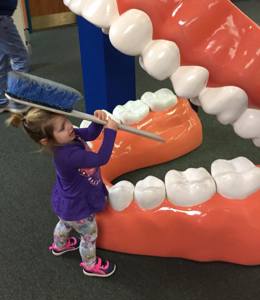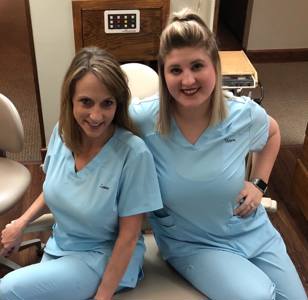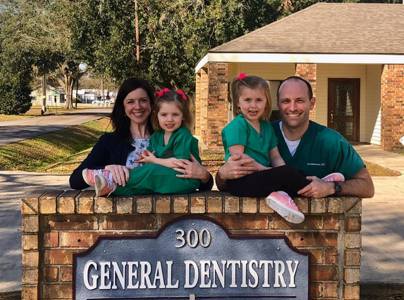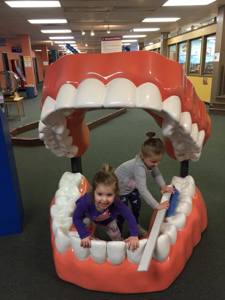Emergency Dentist
At Our Office, We Treat Emergency Cases
Dental emergencies never happen at a convenient time.

Dental emergencies never happen at a convenient time. They can occur while playing sports, sleeping during the night, enjoying a meal with family and friends, or even while you are on vacation.
If you use proper oral hygiene at home diligently, you can prevent such dental emergencies as infections, swelling, or toothaches. You may not be able to avoid other types of emergencies, such as trauma caused by accidents or sports injuries. It is always good to protect your gums and teeth by wearing a mouthguard if you or a family member are involved in sports activities.
Here are some dental emergencies that are relatively common:
- Breakage in your partials or dentures
- Injuries to soft tissue
- Teeth with objects caught in between
- Crowns that are lost or broken
- Pain caused by dry socket issues
- Severely misaligned or knocked-out teeth
- Oral surgery bleeding that will not stop
- Sores or lesions that appear spontaneously
- Teeth that are broken, cracked, or chipped
- Abscessed teeth
- Severe cavity pain
- Gums that are swollen from infected
If You Have A Dental Emergency, What Should You Do?
The first thing you need to do if you have a dental emergency is to remain calm. To properly assess the situation, it is essential to try and keep the injured person as quiet as possible. Before concentrating on teeth restoration, call a physician immediately if a person has lost consciousness after being struck in the head! Check the lips to see if they have received any tooth fragments. If there is any bleeding, check to see if there are any teeth knocked out or any chipped or broken teeth after you have secured a clean gauze or towel.
If I Get Any Teeth Knocked Out, What Should I Do?
Look for any teeth that might be missing, and if you find any such teeth, preserve them by placing the teeth in milk, and immediately call our office. A knocked-out tooth will die quickly if it is not placed in the person’s saliva or milk and can never be placed back in the mouth! Try to reinsert the tooth back into its socket very carefully and hold it there securely with gauze if it is impossible to get to the dentist promptly.
If The Tooth Becomes Chipped or Fractured, What Should I Do?
To get an x-ray and proper evaluation of the damaged tooth and all the surrounding area, you should immediately call our office. To reduce any possible swelling, place a cold compress on the lip if it has sustained any trauma and clean the mouth. Using dental bonding, you can often repair any surface cracks or chips many different times. A crown or root canal therapy may be necessary if more severe cracks or chips are sustained. Depending on the location of a fracture, an extraction may be required in some instances.
If You Have A toothache, What’s Next?
When a tooth’s inside nerve is damaged or inflamed, then a toothache occurs. Acid buildup caused by bacteria from decay that feeds on sugar is what hurts the tooth. This can be prevented through regular dental checkups, brushing, and flossing.
These are some things that can be symptoms of a toothache:
- Running a fever
- The affected area can be tender and swell up
- When chewing your food causes pain and discomfort
- A spontaneous throbbing pain
- Hot and cold things cause lingering sensitivity
Over-the-counter medications can help ease the pain if you have a toothache. However, to keep the problem from progressing into something worse, you should set a dental appointment at the earliest possible time. If teeth are abscessed or an infection is present, the dentist may need to prescribe some antibiotics.
Dental emergencies can come up at any time, and at our office, we realize that. When that time arises, we are here to help. So please call us now if you have a dental emergency.
Sedation Dentistry
For your convenience, we offer these three types of comfort and sedation dentistry:
Nitrous Oxide
This “laughing gas,” as most people know it, is used for simple fillings or routine cleaning treatments and is the most common form of sedation. Thanks to this simple form of sedation, your entire dental treatment can be a relaxing experience.
Sedation By IV
During IV Sedation, the patient’s vital signs are monitored throughout the entirety of the procedure, as the sedation is administered via IV. The patient will have been sleeping during the entire process, in this case, and will awaken only after the procedure.
Suppose a patient must return to school or work after completing the procedure. In that case, it will be especially beneficial for them to understand their need for sufficient recovery time before they leave.
Conscience Oral Sedation
We currently offer oral sedation for our patients who wish to remain conscience and yet come to us with gagging problems or a higher than average amount of fear and anxiety. Throughout the entire procedure, we closely monitor their vital signs once giving a combination of oral medications.
Once taking the oral medication we provide, the patient becomes highly relaxed and drowsy, and after their appointment, most patients remember nothing of the fear or anxiety they may have thought to experience without.
You will not be put to sleep with oral sedation, and during the entire procedure, you will be able to respond to Dr. Melancon and his team.
Specials
In Pain?
Patients who self-pay and contact us due to pain, such as those requiring root canal treatment, fillings, or crowns, will incur a $75 charge for their appointment. This fee encompasses the examination and x-ray essential for diagnosis. Excludes patients with dental insurance.
Need a Cleaning?
New patients, paying out of pocket, who schedule a cleaning will be charged $175 for a basic cleaning. This fee covers an examination, two sets of x-rays, and a regular cleaning. Excludes deep cleaning procedures and patients with insurance.
Need an Extraction?
New patients, paying out of pocket, requiring an extraction will incur a charge of $205. This includes the cost of X-rays, an examination, and the extraction procedure itself. Excludes patients with insurance.
© Melancon Family Dentistry 2026 | Sitemap
Medical Website Designed & Developed by













